My Five-Part Plan For Fixing New York's Bike Problem
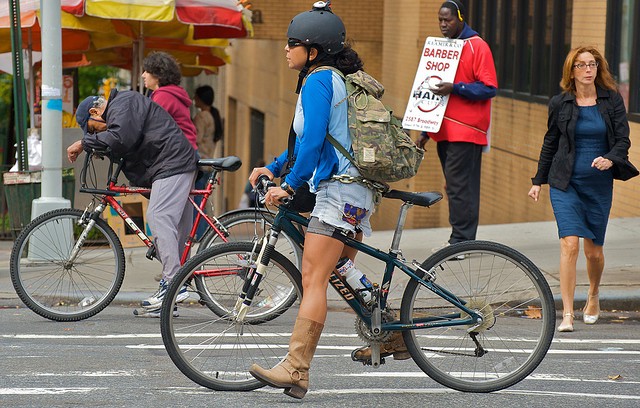
It’s clear to me that no one was built to get along with anyone else. Humans are, in fact, created to be constantly unhappy. Especially with each other. This is what I learned from reading Central European fiction. I believe it was Franz Kafka who wrote something along the lines of “We are incapable of loving, only fear excites us.” After living through a decade dedicated to making us feel freaked out at all times, one might feel like the clouds now are parting. Fear hasn’t excited us so much over the last 5 years or so. We’ve just learned to accept it. And the thing we take for love probably isn’t technically love. “Love Your Neighbor” is more like “Tolerate Your Neighbor.” Love, naturally, is an emotion that makes us do things we’d never do and behave in ways that are completely at odds with the way we want to live. I mean, no one decides logically to fall in love with a loser or anything. We wouldn’t chose to fall in love; it’s an entirely out-of-control feeling that is, at heart, unnerving. No one likes to feel out-of-control. Or in love with people who don’t deserve our love. Or unloved by people we want to love. If Fear is what we’re left with because we’ve lost the capability to truly love anyone else, than we must constantly be finding new things to fear. Fear I get. Love I don’t get.
You want to know what else I don’t get? Why people don’t like bike lanes. And why New York City seems to hate people on bikes. If the cops weren’t throwing your bike in the river during the Republican Convention they were following bike people around for organizing and gathering on Friday nights in Union Square. Bike people are, for some reason, Public Enemy #1. For complicating the lives of car-drivers. When complicating the lives of car-riders is exactly what the government should be doing. I guess we just need to elect a bike-riding mayor. Or maybe just one that doesn’t leave town by helicopter every Friday afternoon.
I’m not a bike person. But I appreciate bikes. It’s kind of like having gazelles in the city. Imagine if there were a million beautiful gazelles running around the city at all times. With their graceful legs constantly bending and jumping, we’d be so thrilled to have these animals running amok on our streets. People on bikes are often beautiful. With their spandex and sweating glistening hotness, toned from riding bikes all over the place. Bike people glisten not just with hotness, but also with a sweaty halo of superiority. They do not pollute the earth except with their hotness. And their haughty, beautiful self-righteous dispositions. And you know what bike people feel entitled to? To not having to worry about being killed riding their bikes in the city. Every day I pass at least one memorial bike painted white dedicated to someone who died on a bike in that very same spot tied forever to a pole. If there were Shells of Cars painted white at every intersection in Manhattan, Queens and Brooklyn, well, that would be a lot of cars. But bikes don’t kill people on bikes. Cars probably do. By running them the hell over. Or people getting out of cars do, when they open a door without looking and hit someone on a bike.
Bike people glisten not just with hotness, but also with a sweaty halo of superiority. They do not pollute the earth except with their hotness.
Their haughty self-righteousness is reasonable enough to me. I’d be a little punchy — though much less glistening-hot — if everything in the city was trying to kill me all the time. I’m too scared to drive a car in the city. Because I’m sure I’d kill a bunch of people and myself. And cars are expensive and a pain in the ass. I have nightmares about parking, I wake up screaming. I’m a jaywalker more than anything else. Whenever I suddenly and mysteriously get the urge to cross the street, I do. It’s because I’m from Boston, where jaywalking is tradition. Paul Revere’s ride took a lot longer because he had to dodge all kinds of dudes who seemed to be crossing the street just to bug him. If you want a city not built for walkers, bikes or cars, it’s Boston and Cambridge. Great for horses, though! And paddy wagons!
New York was also built for horses and carriages. And yet somehow the city elders got together at some point and said, “We should forget about these horses and focus on cars. All this horse poop in the street is really bringing me down.” And so now horses are restricted to bringing tourists around the park in an unhealthy and kind of weird way and cars are everywhere.
If they’ve banned smoking, won’t they someday ban cars in the city? And why do you need a car anyway? You can have Fresh Direct or Soap.com deliver whatever you need to shop for. You can take a cab when you buy dresses at Barney’s. You really only need to have a car in the city when you want to Leave the City. And that’s against the interest of all the businesses in the five boroughs. They want you to stay! And eat dumplings! And go to Thor! And they want you to do it here. Never mind drawing tourists to the city, we ought to make it a little harder to leave for the people who do live here. Thankfully, I have a solution for everything. I’m a middle child, I’m always trying to fix everything.
***
It’s clear to me that cars and bikes and strollers and walkers all can’t live together. I mean, no one can ever really live together in peace with anyone else. But it’s more likely that cars can deal with other cars. And if you asked me which should stay and which should go, I’m picking bikes. Everyone should start biking. Women on bikes are beautiful. Men on bikes look strong. Women and men in cars are just, like, selfishly killing the earth. But apparently we can’t just tax cars for coming into midtown — that’s a solution no one seems to be down with.
Instead, I’d like to advance a solution similar to Chris Rock’s for the gun problem: Guns don’t kill people, bullets do. Just make bullets super expensive., and you would be less likely to shoot guns randomly if at all. Gas is already $4 a gallon in the city. It could just as easily be $100 a gallon. A parking ticket is already $100. It could be $1000. You’d have to be a great car owner to live in Behrle’s New York. Hitting someone on a bike with your door would be $10,000,000 a pop. You’d have to wear a photo of the person you doored around your neck for ten years wherever you went, recounting the story whenever anyone asked. If killing people on bikes was a financial and social pain in the ass, you’d definitely look both ways before you opened your damned door. Most definitely. And if having a car for those who weren’t totally on top of the car at all times was incredibly expensive, you’d keep your car in Connecticut or New Jersey and take public transportation out of town to go visit and drive it around.
There need not only be bike lanes, there ought to be Entire Bike Avenues. I’d start with Broadway. What if only bikes could go up and down Broadway? How delightful might that be?
I propose floating car parking flotillas that can not just house your ride, but also give you a lift out of town to drive it around. They could pick up at 34th St., Battery Park and the Queensboro Bridge (fuck you, Ed Koch) and you could ride it like a ferry to Jersey City, Crouton-on-Hudson or Bridgeport. And then drive, drive, drive like a mofo, you drivers. There’s no reason in the world so much of our city needs to be taken up so that you can drive to your girlfriend’s house 20 blocks away and back. Walk! I mean, You’re Killing the World.
We could also give out parking spaces in New York to only those who are truly deserving. Those who do great deeds, save puppies from fires. Give mouth to mouth to strangers on the subway (only when they NEED mouth to mouth, you pervs!). The mayor now gives out keys to the city that open nothing. How about a golden ticket you hang on your rearview mirror that says you’ve committed enough miracles to earn yourself Parkinghood? And ensuring that you continue to commit grand gestures at all times or else “Yipes! They revoked my Golden Parking Ticket for being a dick!!”
There need not only be bike lanes, there ought to be Entire Bike Avenues. I’d start with Broadway. What if only bikes could go up and down Broadway? How delightful might that be? It’s hard enough to drive up and down Broadway with all those little Tourist Cafés at 23rd, 14th, 34th and 42nd. Just get cars right out of there. Less smog on tourists drinking cappuccinos. In Brooklyn, maybe no bikes on Atlantic Avenue And Flushing. We ought to be making it easier for bikes and harder for cars. Bikes are clean, keep people fitter, create less noise and take up much less space to park. New York City ought to be making it much easier to bike and ought to send cars to the same place they sent saturated fat, the original Four Loko and Marlboros.
But what about Moms and strollers, you ask? Now, first of all, aren’t you a bad person if you use a stroller? Like Maggie Gyllenhaal said in that Dave Eggers’ movie, “Why would you want to push your child away from you?” Shouldn’t everyone have a Baby Bjorn? And use it until the kid is, like, 15? Yeah, they should. But they don’t. They wheel around town in these giant baby missiles. Well, they can have 2nd Avenue. Just push your kids for miles next to other moms and their kids and you can all judge each other.
***
Using this awesome plan, there’d be no cars in Manhattan by about 2012, 100% less pollution and 100% more toned-hot bikers — but the very same amount of people who think that having children makes them special in a world full of people who have had children. Children are fun; people who take their children too seriously are seriously not fun. People have been having children since the beginning of time, but did you know it was actually perfected in Park Slope in the early 2000s? Someday our children will inherit a New York not populated by cars, but with those pneumatic tubes we saw on the documentary “Futurama.” Until then you should think of your child and the oil war they will someday have to fight every time you turn the ignition of your car to drive to the dry cleaner. Vroom! Shouldn’t you be raising your kids in Connecticut anyway? Yeah. You can drive and push strollers around up there all you want.
People on bikes are better people than us. I stand in awe as I watch them go, pumping and pumping while I am eating pork chops. And I say, Go Bike Racers Go. If people had to pedal their Priuses and the only emissions were the Familial Happiness They Felt While Pedaling, I’d be for those, too. I’m still working on my Idea For A Citywide Teleportation Device, with results that are thusfar excruciating. Someday I hope all the things we need will come to us. And we will be 800 pound cyclopses whose main role in life is to ruminate in our own personal kabuki drama. The future is with us and yet it is also so far away. “What will survive of us is love,” wrote the poet Philip Larkin. And he was probably right. So go hug something or someone. When we pick on other groups we are forever wrong. Except people with babies. What’s up with them? What makes them so special? They once had sex? C’mon!
Jim Behrle tweets at @behrle for your possible amusement.
Photo by Ed Yourdon from Flickr.
I'm Not Sure I Can Trust JJ Abrams With My Heart Again
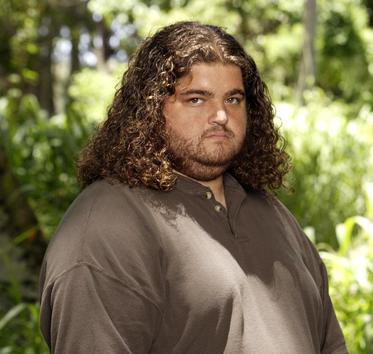
After the disaster that was “Undercovers” (NBC didn’t even air the final episodes of the first season), “Lost” co-creator JJ Abrams is already coming back to TV, baby, because Fox has picked up his “Alcatraz.”
Here’s a pretty through guide, and basically, “’Alcatraz’ will focus on a group of guards, convicts and workers who disappear from the prison without a trace in the 1960’s, only to re-appear in the present day.” AND IT HAS HURLEY. Who, yeah, will have been dead for most of the TV show and blah blah.
I am not sure I can commit to this emotionally. I’ve been hurt so many times before.
House Republicans Decry Tactics That Put Republicans In House
“House Republican freshmen admit that their so-called ‘MediScare’ attacks on Democrats helped them win a big majority in 2010. Democrats had voted for the health care law, which included $500 billion in ‘cuts’ to Medicare — primarily slashing overpayments to private insurers — and Republican challengers never let them forget it. Now, they say, it’s time to let bygones be bygones.”
Rich People Will Save The Economy From High Gas Prices
“For the poorest in society, high gas and petrol prices are a problem. But while they are many in number, they are few in spending power, and their economic influence is just not important enough to offset the economic confidence, well-being and spending of the rich.”
— Good news! Even though gas prices are high, the damage to the economy may be limited, because rich people, the only people who can buy things anymore, just don’t care.
The Best Fried Chicken In The World, Galaxy, Universe
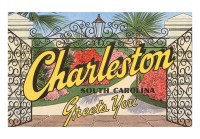
I have a recommendation as to where you should go for lunch: Charleston, South Carolina. Now, unless you’re in Hanahan or Folly Beach or Mt. Pleasant, it could take you a long time to get there. So you might want to leave soon. But you really should go, because Charleston has some of the very best food you will ever eat anywhere. There is a place there called Jestine’s Kitchen, which has become quite famous, and so often has a line of people waiting outside, and so also has lots of people who like to talk about food on the internet dismissing it as a “tourist trap” and inferior to other restaurants of its kind in the area, but you should go there if you like fried chicken, because I went there last Thursday, and it has the best fried chicken I have ever eaten in my life.
Maybe some other area restaurants of Jestine’s kind are in fact superior, I don’t know. I ate at as many places in Charleston as I could — in fact, my weeklong visit to the city was something like that movie Leaving Las Vegas, but with food — but, of course, there are more restaurants in Charleston than there are meals in a week. I couldn’t try them all. But even if there are some better places, I can not imagine they have better fried chicken. Before I tried the fried chicken at Jestine’s Kitchen, I could not have imagined fried chicken could taste this good.
I’ve eaten lots of fried chicken in my life. Some from the red-and-white striped buckets of Kentucky Fried Chicken — including one time during the summer after first grade, when my cousins from Israel came and borrowed my parent’s van and took me driving all around the country for a month. I don’t remember what state we were in, but we had gone to Kentucky Fried Chicken and gotten a bucket to go, and found a picnic table near a stream in the woods, and gotten out and spread out our camping plates and started to eat when the thickest swarm of mosquitos I’ve ever experienced descended upon us. It was horrible, nightmarish. I remember we grabbed everything and ran back to the van, the mosquitos all our faces and eyes while we struggled with the door handles, and then a thousand of the things flew inside with us in the two seconds before we slammed the doors shut, and then slapping at them and being bitten and screaming while we didn’t even drive away, just sat there with the windows closed. I remember after everything calmed, looking down at the piece of chicken I still had in my hand, and seeing a mosquito, a huge one, all black and spindly, with white stripes on its legs, sitting on the batter crust, which I had been planning to eat. So I’ve never really liked Kentucky Fried Chicken since then.
I’ve had lots of good fried chicken, too. At sit-down restaurants, and pot luck dinners, at people’s houses, where they tell you it’s their grandmother’s recipe. With pitchers of beer at Baden Baden in Koreatown. (The name of which, because I’m helpless in this regard, I can never think of without hearing Master P’s voice.) I’ve never gone for the fried chicken dinner at Momofuku, which I imagine is wonderful, like everything else at that place.
Well, all that other stuff just faded into a duller, less-than-truly-delicious memory on Thursday, when I bit into the fried chicken at Jestine’s Kitchen in Charleston, South Carolina. Whoever cooked this chicken (not Jestine, she died in 1997, at the age of 112!) seems to have figured out some kind of chemistry equation about breading and spices and retaining heat and succulence and fantastic, fantastic flavor inside a crispy outer shell of chicken skin. If you can get yourself to Jestine’s Kitchen, please do and order the fried chicken. Dark meat, of course. (What are you, crazy?) Oh, and get the fried okra as a side. But not the collard greens, which were not so great.
Amazingly (amazingly!) the fried chicken at Jestine’s Kitchen was not even the best thing that I ate while I was in Charleston. The best thing that I ate when I was in Charleston was probably the clams and sausage in hot-pepper sauce at Husk. Husk is different kind of place than Jestine’s. It’s upscale and super into the slow-food, local-ingredients, seasonal cooking thing. We went there for dinner, and it was one of things where the waitress was so psyched and enthusiastic about telling you every last detail about the food and where it comes from and the chef’s methods of preparation that you think that maybe she’s on ecstasy or something. But she was certainly knowledgable, and when the food came, it absolutely erased any complaint I might have had. Besides the clams, also super excellent were the smoked pork chop with lima beans, and a rabbit terrine cooked in goose fat and duck fat. (Rabbit can be a little dry, the chef at Husk thinks, according to our waitress. I agree. And I am here to report that cooking it in goose fat and duck fat is a judicious remedy.)
I have now been to Charleston twice. And it has become one of my very favorite places to visit. Besides the food (which we’ll get back to in a minute, if you’re still reading) it is about the prettiest city I’ve ever been. The southernmost tip of the city juts out into the harbor, and is filled with gorgeous old house with a lush, well-kept garden after gorgeous old house with a lush, well-kept garden. Impeccably preserved, all of them. Many of these houses are mansions, really, many of them built by plantation owners before the Civil War. (So there is lots of rich history there, some of it horrible.) Extending from the center of the city is the Arthur Ravenel Jr. Bridge, which is both architecturally attractive and will also carry you over the Cooper River into Mount Pleasant. Strangely named, Mount Pleasant, as there is no mountain there. But Ben Bridwell, of the lovely southern rock band called Band of Horses is from there, and so whenever I’ve driven over this bridge, I put on the car radio and hope to hear one of Band of Horses songs, which have a sound to match the way the surroundings look, and the town’s name, too.
Sadly, I’ve never been so lucky as to hear a Band of Horses song on the radio while driving over the Arthur Ravenel Jr. Bridge, but I did hear Molly Hatchet’s “Flirting With Disaster” while doing so last week, and this was highly satisfying in its own way.
Out past Mount Pleasant, maybe fifteen minutes’ drive, is a smaller bridge which stretches over beautiful marshland to Sullivan’s Island, which is a sort of beach paradise that very lucky people get to live on. (One of those lucky people is my friend Sid, who I went to college with, and who is the editor of Garden & Gun magazine, which is a great magazine that just won a general excellence award at this week’s National Magazine Awards.) On Sullivan’s Island, a couple blocks in from the beach, there is a stretch of bars and restaurants, one of which is called Home Team Barbecue, and you should go here and order a Corona beer and a rack of ribs and have the vinegar sauce with it. If you do this, there is no way you’ll be anything other than very, very happy.
Here are some other things to make sure to eat if you go to Charleston:
1) The mafalde with saffron and crab at the Italian restaurant Lucca. (You know what? You should also get the fried mortadella and the cauliflower custard with egg yolk and pancetta from the starters menu if you go there.)
2) Biscuits at Poogan’s Porch.
3) Pork trotters with fried egg at F.I.G.
4) Pecan pie everywhere, at every restaurant, after every single meal.
Is This Feeling Likeable?
by Josh Jacobs
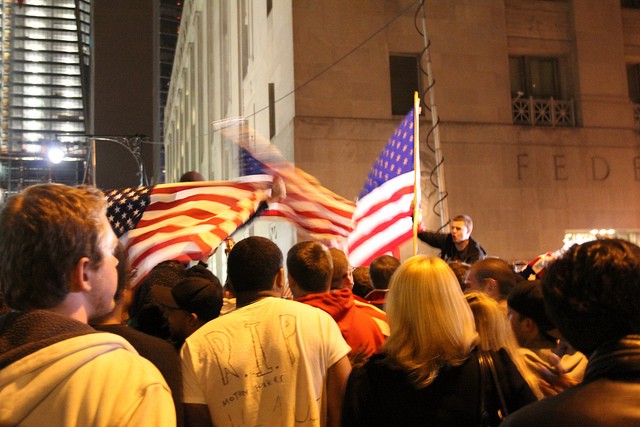
There is a prominent grid square on our cultural map that I’ve learned not to see or talk about. I don’t look at the New York skyline, and I avoid the news for the three days around each anniversary of 9/11. My brother, Aaron Jacobs, was killed in the World Trade Center that day, along with thousands of others. In my daily interactions since then, I have had a terrific wife, world travels and cute kids at the ready to absorb the friendly need of others to situate me in a history. But while I no longer feel as I did in the first year — that I must be marked in some visible way by the loss that was grinding me up inside — I still steer away from casual mentions of Aaron in daily life. I don’t talk about him on Facebook, for example; my memories of him, my ongoing sense of his absence, don’t belong in that stream of grinning kid photos and funny videos.
Before the world knew what the big news of last week was going to be, my family and I were already preparing ourselves to return to 9/11. The Voices of September 11th organization had arranged to meet us at a local library the coming Thursday. We were to provide materials for a small exhibit about Aaron for a museum, the 9/11 Living Memorial, that will exist underneath the redeveloped WTC site, and online, for what we were told is forever. On that Sunday afternoon, my parents, wife and I sat around a table with photos of Aaron — photos that blipped from brace-faced youth to hairy collegiate to secretly silly and tender Wall Streeter. We told stories; we organized our photos into an order. I printed out the eulogy I had given at his memorial service and my family’s “impact statement” about our loss.
When he died, Aaron was 27, and, improbably for those of us who knew him as a smiling shrimp of a kid, a vice president at Cantor Fitzgerald. In the past nine years, we have found some ways to remember him happily. We look for signs of his mischievous eyes in my wife’s and my young girls, and think of him as an accomplished adult making light of his misadventures as a true ADHD boy on a long school-bus ride home after the Ritalin had worn off. Much harder is to think about the empty space where he should be as a son, husband, father, uncle, brother. I never took much notice of brothers and sisters as such before, but now they sneak up on me: I was reading Zadie Smith’s On Beauty a few years ago on a flight and came across a passage in which she describes the two older sibling protagonists playing under their sheet-covered dining room table as kids; then they are preparing to welcome their new baby brother to their tent. “Oh, fuck, Aaron,” I thought, hurled back into that original connection of brothers growing up, and sat there wet-faced and shaking in the anonymous proximity of strangers.
And hardest of all is to go back to 9/11 and the act of murder, the men who did it, the unbearable thought of my brother’s last hours. That Sunday night, after spending the day preparing for our meeting with the museum, I felt the same cold, tight-chested premonitory feeling as I do before 9/11 anniversaries, when I stop wanting to look in the mirror to avoid seeing the tell-tales of grief. So to wake up Monday to news of Osama bin Laden’s death was a shock to my sense of context: what was going to be a private week of excavating our own loss had been put back into the public story of terrorism, war and vengeance.
I heard the news around 6:30 on Monday morning, from friends who emailed overnight to let me know they were thinking about my family and me. It has taken some coaching these past years to let my friends know, especially those who knew Aaron, that I do appreciate it when they breach the silence around this extremely public, world-historical event that happens also to mark my brother’s death. Hearing the news I felt relieved at the fact of bin Laden’s death — and yet a bit surprised by myself too. In the early years I’d played out endless fantasies of killing him, but now I found I’d left that bleak staging point behind. But I also braced even more anxiously for a major public focusing on the 9/11 attacks themselves. I was spared more than 20 minutes of solitary gearing-up, since I had to help make breakfasts and lunches for the kids and then head out the door to a full day of meetings. Riding on the T, I saw the reports of spontaneous celebrations in New York and Washington, and felt a sense of kinship with the gung-ho revelers.
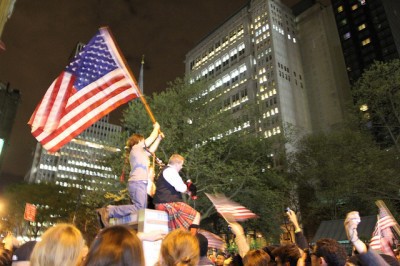
But Facebook constitutes another public square, one oddly personal and yet unconstrained by the emotional cues you get from actually being with someone. I soon saw a consensus emerging on my Facebook page, one that was not happy with this explosion of feeling, and felt “weirded out” at this “dancing on the grave.” The real mega-dittos on Facebook came out that afternoon for what ended up being only partially a quote by Martin Luther King Jr.: “I will mourn the loss of thousands of precious lives, but I will not rejoice in the death of one, not even an enemy. Returning hate for hate multiplies hate, adding deeper darkness to a night already devoid of stars. Darkness cannot drive out darkness; only light can do that. Hate cannot drive out hate, only love can do that.” (The first sentence, which was the one most picked up on Twitter, was not written by Dr. King.)
On Facebook, you never know if something is actually directed at you, or just stated in your “presence.” But I immediately felt a certain admonition in this passage, particularly as it went viral and was shared on several friends’ status updates. Invoking MLK is pretty strong stuff and I did not appreciate being lumped (however unintentionally) with the presumably ignorant or less-than-high-minded people who might exult in bin Laden’s death. There is no headstone or angel icon on Facebook to indicate when you’re mourning someone, as there is with the heart icon for relationship status. I could not bring myself to debase Aaron’s memory or my loss by responding to a quote that a bunch of people had thought about for 15 seconds before pressing “like.”
This all played out Monday afternoon on a tiny phone screen that I could barely see as I jammed into the T again to ride to Fenway Park. By chance, my dad and I had plans to go to the Red Sox game that night. At the stadium, we entered an entirely different public space for reacting to the day’s news. Just before the game, the teams all ran out and stood along the first and third-base lines, while the announcer talked about the many feelings stirred up by the day’s news (no specifics). Soldiers, sailors and Marines marched onto the field and a huge American flag covered the Green Monster, as the Brockton High School marching band did a very creditable job with “The Star-Spangled Banner,” given the unexpected attention. Since 9/11, sports crowds — with their paradoxical offer of both anonymity and connection with so many others — have provided my dad and me with welcome opportunities to release our emotions about Aaron. There is no other setting in which we can cry publicly and also jump and cheer within the scope of a few hours, happy to have the chance to celebrate something as big and incontrovertible as an epic Pedroia at-bat.
The next morning I did type out a status update, still unwilling to refer to Aaron explicitly, even while wondering if the aspect of myself that mourns his loss has a place on Facebook: “The consensus MLK quote regarding yesterday seems to be the one about hate not driving out hate. Agreed. MLK also said, ‘the arc of the moral universe is long, but it bends towards justice.’ Hope everyone is OK with those two sentiments coexisting, as they do in me and many others.” Was this a likable position? As the mixed provenance of the MLK quote emerged, some doubled down and stuck with it as their statement on the week. There were no “oh jeez, were you on that thread?” sorts of apologetics after I stuck my head out.
Thursday, President Obama visited the Ground Zero site and met privately with 60 families of those lost. In a bright room in Wellesley that same morning, we made similar excruciating gestures, explaining our Aaron through photos to a representative from the 9/11 Living Memorial. A former nurse, whose kindness and professional relation to pain were well suited to her new role, laid out some scanners and forms to help us enter in our materials. A number of these, including the image used in the New York Times “Portraits of Grief” series, showed Aaron as the best man at my wedding, in August 2001, where he looked confident and in love with his fiancée. The photos are skimmed off the high points — graduations, Bar Mitzvahs, vacations — and the problem with spreading them out in front of a well-meaning interlocutor is how easy it is to feel the old, natural, forward momentum towards what surely was going to be a long life together.
The Facebook focus has already shifted from actual terrorists and soldiers to “Cats of the US Special Forces.” That’s fine with me (although I’m back to not “liking” anything on this topic), and I look forward to resuming normal sharing of interesting links and kid photos on my own page. I’m grateful to the work of museums and memorials for the convening place they offer to those who need to remember the dead in public. But the challenge of curating Aaron’s memory continues, and I have been reminded in the past week to be careful about mixing the intense, bloody, life-long thread of that inherently private work with the carefully modulated daily life and observations I share with Friends and Followers.
Josh Jacobs works at MIT and lives outside of Boston.
Photos by davem_330 from Flickr.
The Chronicles of Negronia
What or where is Negronia? I don’t think I’m allowed to talk about this topic, so I will just send you here. She’ll set you straight.
Meet The Best Dentist Ever
You know, some people consider Texas to be a barren, heartless prison of stunted humanity and cultural illiteracy. To them it is a symbol of the worst American values; a place where ignorance is prized, rapacity lauded, the least fortunate scorned and abandoned, plus even the babies are packing heat. On the other hand, there is a dentist there who serves wine and beer. So it can’t be all bad. [WARNING: Includes standard local news punnery.]
How To See Osama Bin Laden Corpse Photos
Want to see the pictures of dead Osama bin Laden? Run for Congress.
The White Tide of Comic Book Heroes
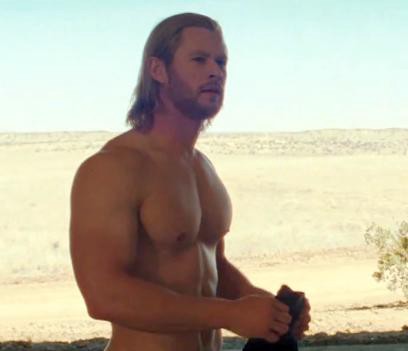
The Marvel Universe is taking over theaters (Thor! Captain America! The Avengers!) at an excellent time, given our intertwining obsession with bad guys and Navy Seal teams and the end of the world and buff dudes like Chris Hemsworth and koyaanisqatsi in general. And then, what is going on at Marvel, where recently a number of their franchise comics have gone almost all-white? “It felt unconscious instead, part of a series of all-white sweeps across other cultural industries in the last two years — the very white Academy Awards, the very white Emmys, the very white National Book Awards, and so on. It was the superhero version of these things. As if the sight of Obama had triggered some protective instinct, atavistic and intense, and everyone was giving white people prizes. And now were bringing back Viking gods for good measure.”
